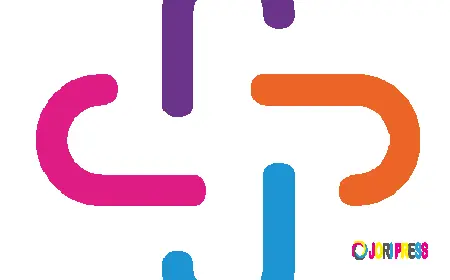How AI Predictive Analytics Is Revolutionizing Healthcare & Enhance Patient Outcomes
Anticipating and preventing medical issues before they arise has long been a goal in healthcare, yet traditional systems have struggled due to a lack of timely and precise insights. Delayed interventions often result in compromised patient care. Today, AI predictive analytics is emerging as a transformative force, enabling healthcare providers to act early and decisively.
The New Era of Predictive Healthcare
Anticipating and preventing medical issues before they arise has long been a goal in healthcare, yet traditional systems have struggled due to a lack of timely and precise insights. Delayed interventions often result in compromised patient care. Today, AI predictive analytics is emerging as a transformative force, enabling healthcare providers to act early and decisively.
By utilizing massive datasets and machine learning algorithms, this technology helps forecast health risks, recognize patterns, and guide proactive decision-making—offering an effective solution to longstanding challenges in patient care.
What Is AI Predictive Analytics in Healthcare?
AI predictive analytics in healthcare involves the use of artificial intelligence and machine learning to analyze clinical data and make intelligent predictions. These tools help identify potential health events before they happen, allowing clinicians to take preventive or timely actions.
This game-changing technology supports better patient care, more efficient operations, and reduced healthcare costs. By proactively managing risks and enabling real-time interventions, AI-driven analytics sets the stage for a more effective, data-informed healthcare system.
How AI Predictive Analytics Improves Patient Care
1. Personalized, Data-Driven Care Plans
AI uncovers unique patient patterns and trends by analyzing vast amounts of medical data. This allows for tailored treatment strategies that improve therapy outcomes and reduce adverse effects.
2. Earlier Interventions for High-Risk Patients
Predictive models identify individuals at increased risk for certain conditions, enabling early detection and prevention of serious complications such as sepsis, heart disease, or kidney failure.
3. Optimized Hospital Operations
From predicting patient admissions to managing staff levels and bed usage, AI analytics streamlines operations, ensuring efficient resource allocation and smoother workflows.
4. Cost-Efficient Treatment Delivery
By forecasting disease progression and minimizing unnecessary procedures, healthcare providers can cut costs while improving care quality. AI also reduces hospital readmissions and medication errors.
5. Smarter Clinical Decisions
With access to AI-generated insights, doctors can make more accurate diagnoses, forecast treatment responses, and identify coexisting conditions that might otherwise be missed.
Also Read: A Beginner’s Guide to Understanding the Intersection of AI and IoT
6. Better Population Health Management
AI analytics helps monitor public health trends and predict disease outbreaks, enabling targeted health campaigns and policy interventions. This boosts long-term health outcomes across communities.
Real-World Applications of AI Predictive Analytics
Leading healthcare innovators like IBM Watson Health and Google DeepMind Health are already seeing results:
-
IBM Watson Health aids in early sepsis detection, reducing mortality rates.
-
DeepMind’s AI predicts the onset of acute kidney injury days before symptoms appear, enabling lifesaving interventions.
These use cases demonstrate how AI transforms reactive healthcare into a proactive, preventive system.
How Does AI Power Predictive Analytics?
AI enhances predictive analytics by leveraging machine learning, deep learning, and natural language processing (NLP) to extract actionable insights from structured and unstructured data—like EHRs, medical imaging, and clinical notes.
These intelligent systems continuously learn and improve, refining predictions over time and helping providers better anticipate:
-
Disease progression
-
Response to treatments
-
Potential complications
-
Hospital readmission risks
This level of insight empowers healthcare professionals to act with greater confidence and efficiency.
Benefits of AI Predictive Analytics in Healthcare
-
Risk Stratification & Chronic Disease Management: Early identification of at-risk patients for timely intervention.
-
Enhanced Clinical Decision Support: AI delivers real-time insights to support diagnostics and treatment planning.
-
Improved Care Coordination: More efficient staff and resource management across departments.
-
Lower Operational Costs: Reduced unnecessary tests, better use of resources, and minimized readmissions.
-
Advanced Public Health Monitoring: Proactively respond to disease trends and public health threats.
-
Strengthened Cybersecurity: Predictive analytics helps detect potential threats, safeguarding patient data.
-
Personalized Medicine: Offers tailored treatment paths based on genetic, demographic, and behavioral data.
What’s Next: AI’s Role in the Future of Healthcare
AI is positioned to reshape the entire healthcare ecosystem, from diagnostics and treatment to administration and public health. Tools like AI-driven imaging systems, robotic surgery assistants, and virtual health platforms are already improving accuracy, safety, and patient satisfaction.
Despite challenges related to data privacy, ethical concerns, and system integration, the continued evolution of AI predictive analytics promises a future of smarter, safer, and more personalized healthcare.
Conclusion
AI predictive analytics is not just a technological upgrade—it’s a healthcare revolution. By enabling personalized care, early intervention, cost savings, and better decision-making, AI is helping medical professionals deliver superior outcomes for patients and entire populations.
Also Read: IoT Automation: Everything You Need to Know About Internet of Things
What's Your Reaction?
 Like
0
Like
0
 Dislike
0
Dislike
0
 Love
0
Love
0
 Funny
0
Funny
0
 Angry
0
Angry
0
 Sad
0
Sad
0
 Wow
0
Wow
0
















































